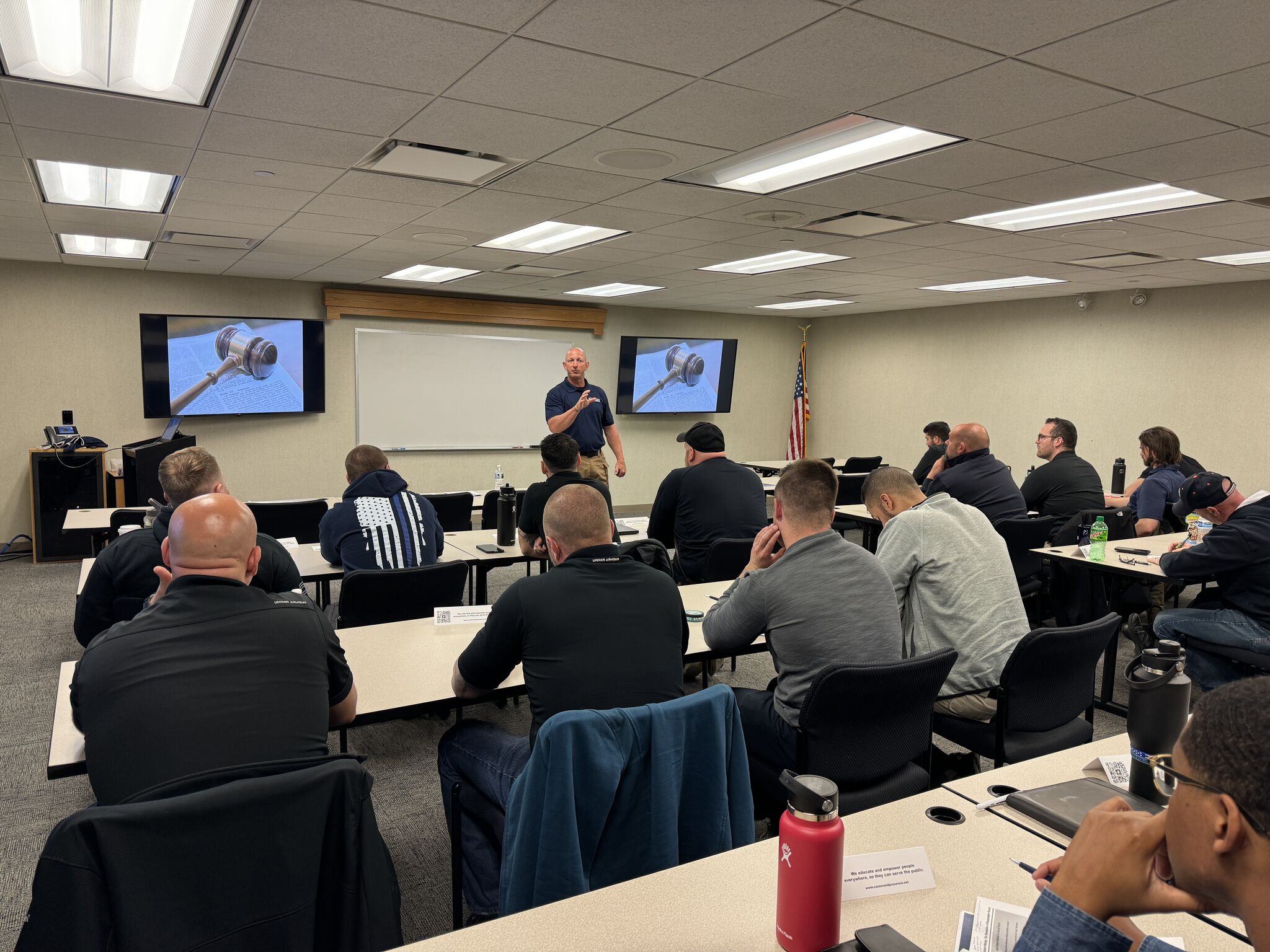How to Lead Former Peers Without Losing Respect
Stepping into your first supervisory role is one of the most defining transitions in a law enforcement career.
You’ve earned your promotion—and now you’re responsible for leading the same people you once worked beside.
At Command Presence, we’ve helped thousands of new sergeants strengthen their leadership presence through realistic, experience-based training. The goal: to help supervisors lead with clarity, humility, and confidence—without losing the trust of their teams.
Why This Transition Feels Different
Becoming a leader after years as a peer can feel like walking a tightrope.
Your responsibilities change overnight, but relationships don’t.
Former teammates may question your decisions, not because they doubt you, but because they’re adjusting too.
The difference between success and struggle in this moment often comes down to how you communicate and follow through. Effective leaders don’t rely on rank—they earn trust through consistency, fairness, and accountability.
“Leadership isn’t about the stripes on your sleeve—it’s about the trust you build in every interaction.”
Lead with Transparency and Accountability
The most respected sergeants set expectations early—and live by them.
Be transparent about your priorities, your leadership philosophy, and the standards you’ll uphold.
Example statement:
“My goal is to make sure every one of us goes home safe, does the right thing, and serves the public with pride.”
This kind of clear, purpose-driven message reinforces your commitment to your people and your mission.
It’s also the foundation of great law enforcement leadership development—aligning every decision with shared values, not personal authority.
Communicate Like a Leader, Not Just a Friend
Strong communication is what separates good supervisors from great ones.
Avoid extremes—don’t become distant or overly casual.
Instead, lead with professionalism and emotional intelligence.
- Listen first. Give space for input and perspective.
- Be decisive. Once you’ve gathered the facts, make the call.
- Follow through. Your reliability defines your credibility.
This balance builds authentic respect and strengthens team communication—two hallmarks of effective leadership on the front line.
Earn Respect, Don’t Demand It
You can’t command respect—it’s something you earn through your actions.
Your team will notice how you handle accountability, share credit, and own mistakes.
Show fairness, consistency, and humility in every situation.
Avoid favoritism or micromanagement. Instead, lead by example.
When you demonstrate professionalism and care for your team, they’ll respond with the same commitment to excellence that you show them.
That’s what real leadership in law enforcement looks like—quiet influence built on trust.
Invest in Mentorship and Growth
Leadership doesn’t stop with the promotion. The best sergeants make it a priority to mentor others and strengthen the next generation of leaders.
Encourage your officers to take initiative, ask questions, and develop their own leadership skills.
This kind of intentional mentorship creates stronger teams, better communication, and safer outcomes on the street.
Our Bridge the Gap: Agency Success Through Mentorship course is designed to help supervisors do exactly that—build trust, strengthen accountability, and develop future leaders at every rank.
Key Takeaway
When you move from peer to supervisor, your role changes—but your purpose doesn’t.
Leading former peers successfully means leading with respect, transparency, and consistency.
It’s not about authority; it’s about influence.
And when your actions align with your words, you’ll earn a kind of respect that no badge or title can demand.
Ready to Strengthen Your Leadership Presence?
Join us for Bridge the Gap: Agency Success Through Mentorship, where experienced instructors share proven frameworks for leading with confidence and connection.
View Upcoming Trainings →







